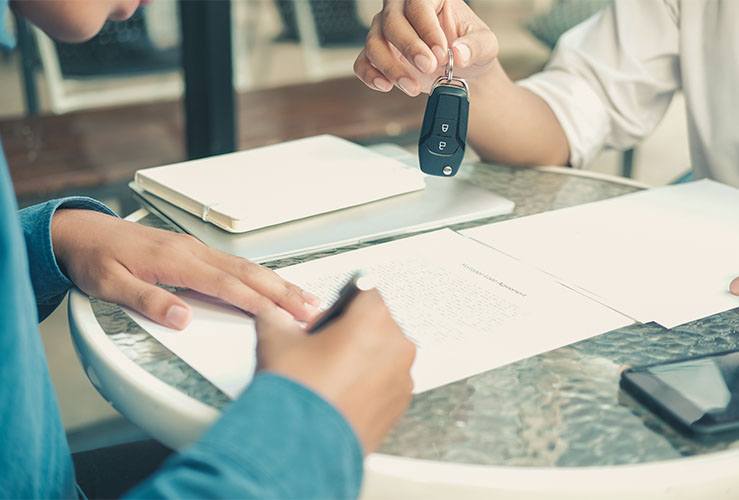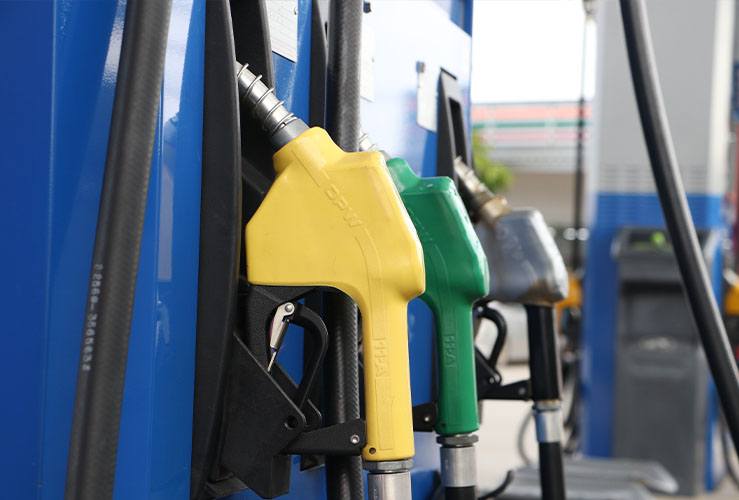Leasing a car gives you the opportunity to drive a brand new car for a neat monthly fee. However, there are a number of extra costs to consider that you'll need to budget for before you sign on the dotted line. And we're not talking about magic trees, fluffy dice or beaded seat covers...

When you lease a car you'll be required to pay for a certain number of months up-front. This is usually 3, 6 or 9 months. The following month, your normal monthly payments begin. You can choose to pay less for the up-front fee, but this will result in a higher ongoing monthly payment. Of course, if you choose to pay for 9 months up-front, your ongoing payments will be lower.
Organising a car lease agreement invoices a surprising amount of paperwork. Expect to pay around £300 for this service. If no admin fee is charged, it will be included in your monthly fee.
You will of course need to insure your car. Your leasing firm may insist you take out comprehensive car insurance, rather than third party fire and theft - which could mean paying a higher premium. The leasing firm will need to be registered with the insurer as the car's owner - and they may require you to take out "gap insurance" - which protects you from having to pay any remaining payments should your vehicle be stolen.
Since you'll be leasing a brand new car that will (in all likelihood) be less than 3 years old when you return it, you won't need to pay for any annual MOTs. However, it's important to keep your car well maintained. You'll need to figure service and maintenance costs into your ongoing budget.

Some leasing firms offer a maintenance package, which is paid for either at the time of leasing in one lump sum, or as an ongoing monthly fee.
Since your lease car will be new, it will be protected under the manufacturer's warranty. This means any necessary repairs will be covered, so long as they weren’t caused by negligence on your part.
Your leasing firm will expect a certain degree of wear and tear on the car by the time it is returned. “Fair” wear and tear is detailed in the British Vehicle Rental and Leasing Association’s (BVRLA) guide, which the leasing firm will give you.
You will need to repair anything that goes beyond what is deemed "fair" before you hand the car back.
You will of course need to set aside money each month for fuel. If you plan to take a lot of regular long-distance trips, this sum will mount up.
You can get a good idea of how much you spend with this fuel calculator.

When you sign your lease you'll be agreeing to a maximum mileage - normally 8,000 or 10,000 miles per year. Don’t worry though: if you go over this limit in the first or second year, you can drive fewer miles the next year to make up for it. However, if after the years your mileage exceeds the stated maximum, you will be charged an extra fee, normally based on how many extra miles you've driven. This fee may be up to £1 per mile, so driving an extra 1,000 miles (roughly London to Inverness and back) could add another thousand pounds to your costs.
VAT - or Value Added Tax - is charged on your monthly lease. UK VAT currently stands at 20% - so it substantially increases what you'll pay. Most leasing prices are quoted exclusive of VAT, so it’s important to bear it in mind when budgeting for your new car.
A Personal Contract Purchase (PCP) is like leasing a car, but you get the chance to buy it at the end of the agreement - if you wish. You'll need to factor in the 'balloon payment' at the end if you want to buy the car, but otherwise all the fees levied on a lease car will apply to PCP agreements.




